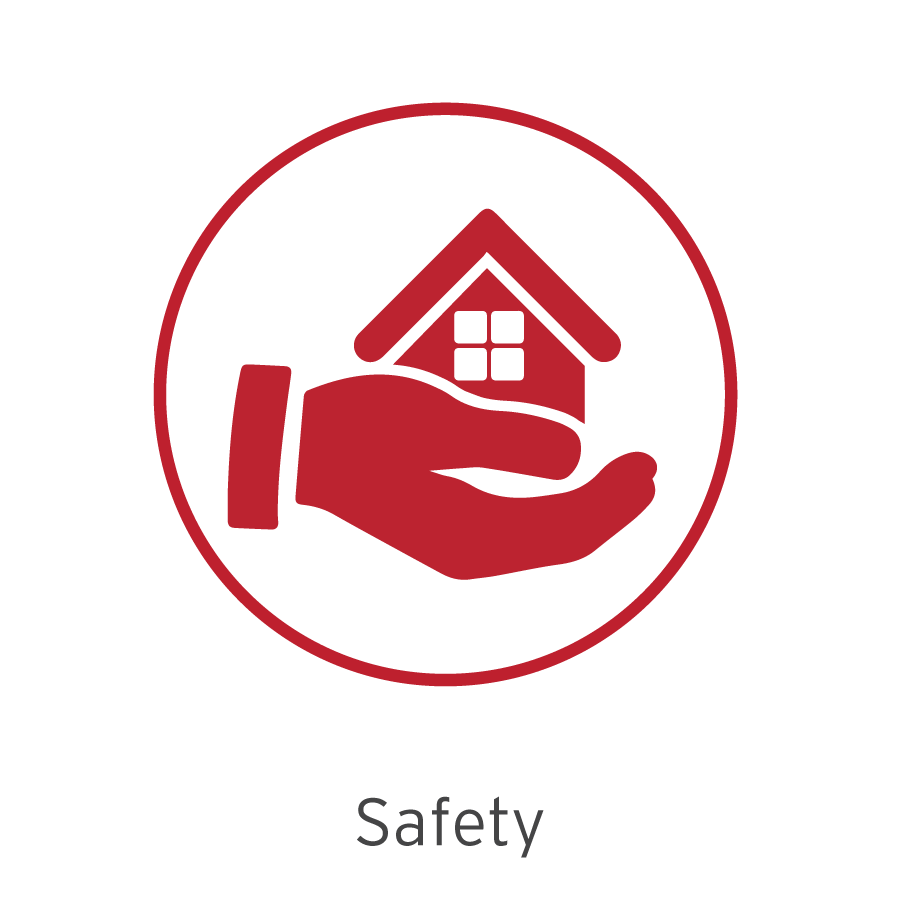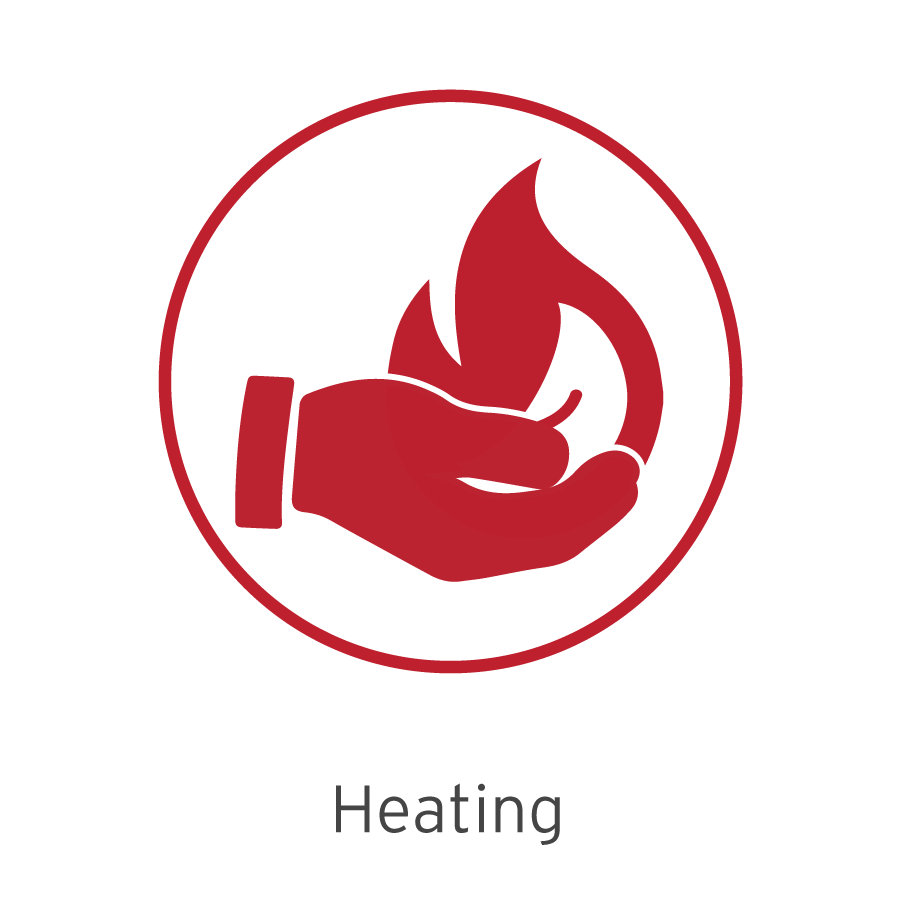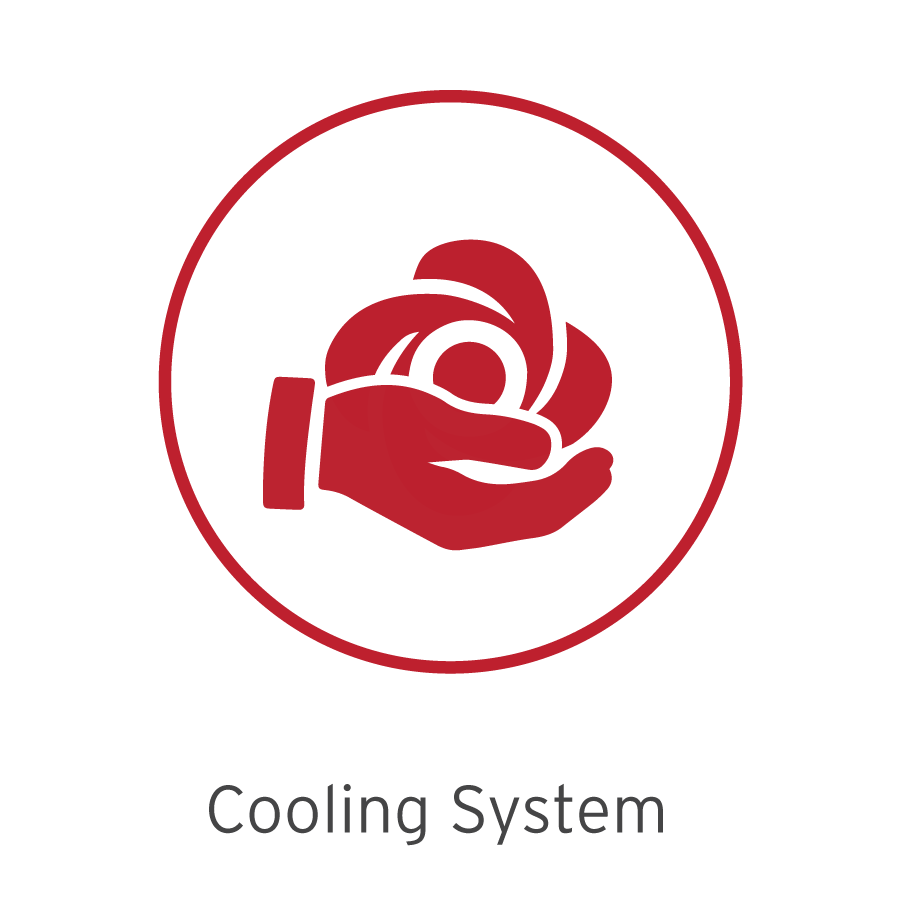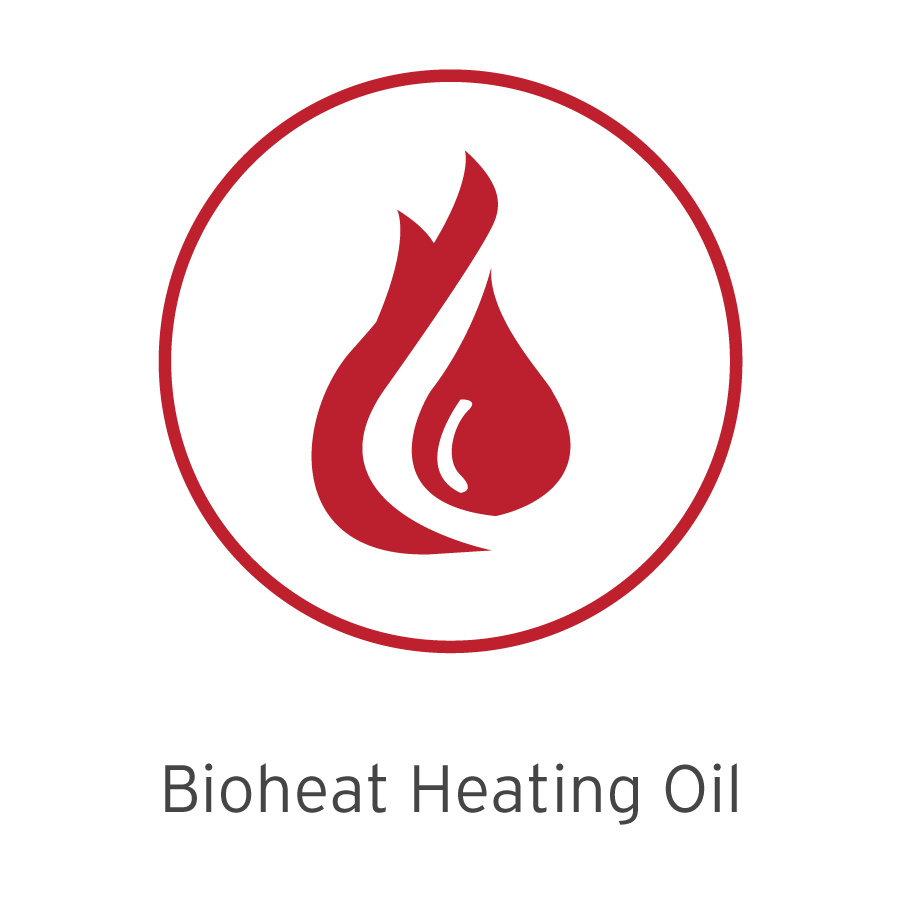Frequently Asked Questions
You’ve got questions - and we’ve got answers. We’ve assembled our most frequently asked questions in regards to heating, cooling and Bioheat.
Have another question? Contact us here!
SAFETY FAQS
Propane: What should I do if I smell gas?
Leave the Area: Take immediate action by getting all people and pets out of the home.
No Flames or Sparks: Avoid igniting the gas! Do NOT turn off/on any lights or electrical devices and do NOT use a cell phone inside the home.
Shut the Gas Off: If it is safe to do so, turn off the main gas supply valve on your propane tank. For step-by-step instructions, watch our how-to video HERE.
Report the Leak: Call us at 203.227.5181 or an emergency responder; our trained technicians or an emergency responder can determine whether it is safe to return to the home.
System Check: Before using any of your propane appliances, a Gault technician must check your entire system to ensure there are no leaks.
Propane: My propane system might have a leak. How can I tell?
By the smell. All family members in the home should be able to recognize the scent of propane; it is often compared to garbage, sewage, a skunk’s spray, or a dead animal. We recommend installing a propane gas detector and carbon monoxide detector as an extra precaution. If you think you smell gas, follow the steps in the above FAQ and call us at 203.227.5181 to report a gas smell.
Oil: I have home heating oil and I smell oil.
If you can smell oil, your system most likely needs maintenance. Please call us at 203.227.5181 to schedule a service appointment. Repairs might be necessary to prevent dangerous fumes from entering your home. We also recommend installing a carbon monoxide detector as an extra precaution.
Oil: Is my oil tank leaking?
An oil leak is a serious problem. Some common signs include: sharp unexplained spikes in oil use, poor furnace performance, smell of oil, and oily sheen near the tank or around drains/other low points. If you suspect an oil leak, please call us at 203.227.5181 to schedule a service appointment.
HEATING FAQs
My heat is not working. How do I restart my system?
In the event your heat turns off, there are a couple of steps that you can complete before calling us. Watch our step-by-step video here or follow the steps below. If your system does not turn on after completing these steps, please call us at 203.227.5181 to schedule a service call.
Make sure your thermostats are in heat mode and set above room temperature
Check the gauge on your oil or propane tank to ensure that you are not out of fuel. Not sure how, check out our how-to video.
Check your electrical breaker to make sure it is not turned off
Check that the heating system burner switches are in the ON position. The switches are located at the top of the basement stairs or outside of the utility or mechanical room, and on the heating system itself
Once you’ve verified that all of the switches are on, you can try to reset the furnace or boiler
To reset your system, locate the red reset button on the heating system itself. The button is located towards the bottom of the unit
Press and hold down the reset button for 5 seconds and then release
The system should start automatically within 10 seconds
What is the difference between a boiler and a furnace?
A boiler uses hot water (think of boiling water) to heat your home, and a furnace uses warm air, also referred to as forced air.
How is the energy efficiency of heating equipment rated?
The standards for energy efficiency are set by the U.S. Department of Energy with either a HSPF or AFUE rating assigned to every piece of heating equipment. HSPF (Heating Seasonal Performance Factor) is how the heating efficiency of heat pumps are rated; the higher the HSPF, the more efficient the units are. AFUE (Average Fuel Utilization Efficiency) is the measurement of efficiency of gas- and oil-fired heating equipment. The rating is shown as a percentage indicating how much fuel is used to heat a house – and how much is wasted. The higher the percentage, the better the efficiency.
How do I know when it is time to replace my heating equipment?
Although there is no exact age at which equipment should be replaced, experts consider replacement within a 15- to 20-year time frame. If your equipment has been properly maintained and continues to run efficiently, it could have a longer lifespan. Learn more here.
Is it important to have a tune-up regularly on my equipment?
Yes! Regular system maintenance is critical to keeping your system working at peak efficiency, which can help you save money on your monthly utility bills, prevent breakdowns, and extend the lifespan of your system. Learn more here.
COOLING FAQs
My air conditioning is not working, what should I do?
In the event your AC turns off, there are a couple of steps that you can complete before calling us. If your system does not turn on after completing these steps, please call us at 203.227.5181 to schedule a service call.
Make sure your thermostats are in cool mode and set below room temperature
Check for any signs of ice on the outside unit. If there is ice, turn the unit off - the ice must melt before a service technician can be sent to the home
Make sure all furnace and air handler switches are on as well as all circuit breakers
Can I change my air conditioning filters myself, and if so, how often?
It is recommended that AC filters be changed once a month during peak cooling months. Homeowners are able to change filters themselves; if you do not know how, ask your service technician during their next visit!
How is the energy efficiency of cooling equipment rated?
The standards for energy efficiency are set by the U.S. Department of Energy with a SEER rating assigned to every piece of cooling equipment. The higher the SEER, the greater the efficiency.
During the summer months, should I turn off my air conditioning during the day when my home is unoccupied?
On very hot days, it will take several hours to cool a house, and during these days, it is beneficial to leave the AC running from early in the morning, in order for the system to keep up with the daytime heat. On moderate days, the temperature can be raised in your home by four or five degrees while you are away.
How do I know when it is time to replace my cooling equipment?
Although there is no exact age at which equipment should be replaced, experts consider replacement within a 10-year time frame. If your equipment has been properly maintained and continues to run efficiently, it could have a longer lifespan. Learn more here.
Is it important to have a tune-up performed regularly on my equipment?
Yes! Regular system maintenance is critical to keeping your system working at peak efficiency, which can help you save money on your monthly utility bills, prevent breakdowns, and extend the lifespan of your system. Learn more here.
What are the different types of air conditioning systems?
Whole-Home Cooling: A central AC cools an entire house through ducts and vents. It’s energy-efficient for larger spaces but may be overkill for smaller homes.
Window Air Conditioners: is more for Single-Room the cooling is designed for cooling a single room or small area. Suitable for small spaces but less efficient than central AC for larger homes.
Split-Ductless (Mini-Split) Systems: Zoned Cooling: Provides individual control for different rooms or zones. Ideal for homes without ductwork or where extending ducts is impractical.
Why is my AC system leaking water?
The primary function of an air conditioner is to remove sticky water from the air and put it into a drain. Many times, the drain can become obstructed by dirt, especially if the air filtration system is poor. The other reason an AC leak can be more serious is ice! When refrigerant levels are low and/or airflow is restricted the AC coil by your furnace or air handler freezes. When this happens, water collects & turns to ice and grows larger than the drain system, then defrosts. This water can infiltrate dark places and grow mildew, or even affect electronic components, damaging your HVAC system.
How often should AC coils be cleaned?
AC coils should be cleaned every year during the spring/summer months to prevent any pricy repairs or problems. During an AC cleaning our technician will check the coil for cleanliness, leaks & refrigerant levels. All gas & electrical components are inspected for safety & performance. The technician will inspect & change your filters, but it is also important to regularly change your filter every month in between seasonal tune-ups of your HVAC system.
What is the best time to buy an air conditioner?
If you are investing a lot of money into repairing it, it’s probably time to consider replacing your air conditioner. It’s best to replace your air conditioner before the extreme temperatures arrive to ensure continued comfort & safety. Keep a lookout for our special promos throughout the year!
What are R-22 and R-410A refrigerants and why are they being replaced?
R-22 refrigerant, also known as Freon, is used in AC systems built before 2010 and R-410A, a blend of refrigerants, replaced it per the EPA due to R-22’s ozone-depleting properties. As part of the EPA’s larger plan to reduce global warming, R-410A is now being phased out for a refrigerant that is better for the environment, R-454B. As of January 1, R-454B equipment is in production and being sold. Equipment using R-410A is still available but in limited quantities. If your system is getting older and uses R-22 or R-410A, it is time for a replacement with a new highly efficient system!
How can I save money on my energy bills during the summer?
Keep your AC clean by getting a tune-up from our technician & regularly changing your filter. Another way to save money on your energy bills is to invest in a thermostat that has a set schedule to regulate the use of your air conditioning.
How can I tell if my AC needs servicing?
Common signs include reduced cooling efficiency, unusual noises, unusual odors, and higher energy bills. If you notice any of these, it's time to schedule a service! Call 203.227.5181!
Bioheat FAQs
What is Bioheat?
Bioheat is a blend of ultra-low sulfur heating fuel with biodiesel, a domestic, sustainable heating oil replacement.
What is Biodiesel?
Biodiesel is a heating oil replacement that is produced from a variety of renewable resources, such as plant oils, animal fats, recycled grease, and even algae, making it one of the most sustainable fuels on the planet. As an industry, biodiesel supports approximately 64,000 jobs and $11.42 billion in economic impact.*.
Where is Bioheat made?
The crops used to create Bioheat are grown in the United States and it is blended right here in Connecticut. The blends currently range from B5 fuel containing 5% plant content to B20, which contains 20%.
Is Bioheat cleaner than natural gas?
Yes! Bioheat is cleaner than natural gas. In a 20 year atmospheric life cycle analysis conducted by Brookhaven National Laboratories, emissions of greenhouse gases from Bioheat blends as low as 1.8% have been proven to be lower than those from natural gas.
Does Bioheat cost more?
No, in fact Bioheat can save you money because it helps your heating equipment run more efficiently, which extends the life of the equipment and can lead to less maintenance.
Do I have Bioheat?
Yes! Gault has been delivering Bioheat for almost a decade. In fact, almost every gallon of heating fuel delivered in Connecticut is Bioheat with more than 600 companies delivering it locally in the state.
What is the future of Bioheat?
The industry is committed to continually improving the product that we deliver; in fact, today’s heating oil burns 95% cleaner than it did 50 years ago and with drastically reduced sulfur content as well as alternative solutions like biodiesel blends, the product will continue to burn cleaner thus cutting greenhouse gas emissions. In fact, if the U.S. followed Connecticut’s lead and switched to a 5% Bioheat blend, the country would burn approximately 187 million gallons less of regular heating oil. If that were a 20% blend, that number quadruples!
*https://projectcarbonfreedom.com/solution






